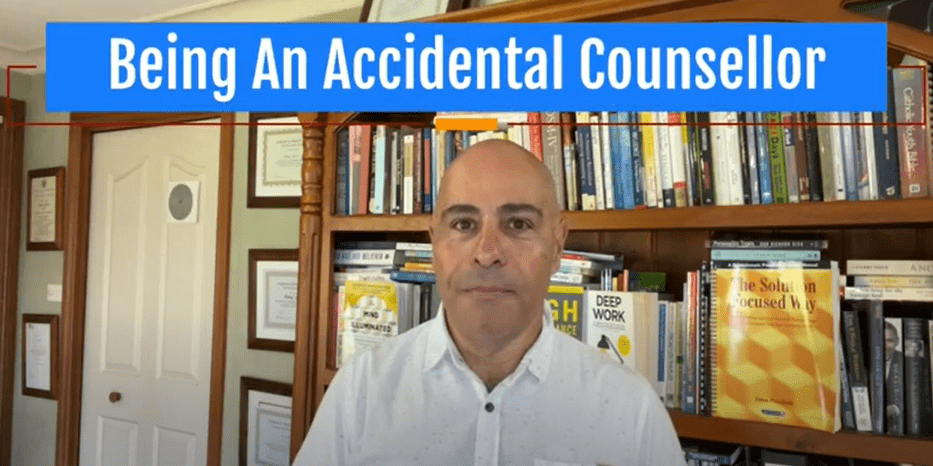Being an Accidental Counsellor can be challenging and rewarding.
Who are Accidental Counsellors, first of all?
An Accidental Counsellor is anyone (a healthcare professional, teacher, parent, friend, colleague, Human Resource or community service worker) who is listening and responding to emotional distress.
Even though it wasn’t in your job description, it is not uncommon to find oneself acting as a counsellor. Patients or clients may confide in you about personal matters seeking support and advice. Or perhaps you have friends, family, coworkers, students, or even your own child who might come to you for counsel or just a sympathetic ear.
Being an accidental counsellor can be rewarding and fulfilling, as you have the opportunity to make a positive impact on someone’s life by providing a safe space for them to share by listening attentively. However, it can also be challenging, as you may not feel fully prepared or qualified to provide the help that is needed and in many cases feel burnout from hearing stories of pain and suffering.
So, what can you do if you find yourself in this situation?
First and foremost, it is important to acknowledge your own limits and boundaries. You are not a trained therapist and should not attempt to provide therapy or counselling services beyond your scope of practice. If a patient or client, student, friend or colleague is in need of more specialized help, it is important to refer and encourage them to access a qualified mental health professional.
At the same time, it is okay to offer support and guidance within your own abilities. You can listen actively, ask open-ended solution focused questions, and provide empathy and understanding. All of these skills you learn at accidentalcounsellor.com. It can also be helpful to provide resources and information, such as websites or hotlines, that may be of assistance.
It is also important to take care of yourself when acting as an accidental counsellor. Dealing with other people’s problems can be emotionally draining, so it is crucial to make time for self-care and to seek support from colleagues or a supervisor if needed.
In summary, being an accidental counsellor can be a rewarding and challenging experience. It is important to recognize your own limits and boundaries, offer support and guidance within your abilities, and take care of yourself. By following these guidelines, you can make a positive impact on those who turn to you for help.
To learn more about the Accidental Counsellor Training go to www.accidentalcounsellor.com
In Australia if you, or someone you know is in immediate danger, please call 000, visit your nearest hospital emergency department, or use any of these crisis helplines:
Lifeline: 13 11 14 or lifeline.org.au
SANE Australia Helpline: 1800 18 SANE (7236) or sane.org
Beyond Blue: 1300 22 46 36 or beyondblue.org.au/forums
Black Dog Institute: blackdoginstitute.com.au
Headspace: 1800 650 850 or headspace.org.au
ReachOut: reachout.com
Suicide Call Back Service: 1300 659 467
13YARN: 13 92 76
Anxiety Recovery Centre Victoria (ARCVic) Helpline: 1300 269 438

